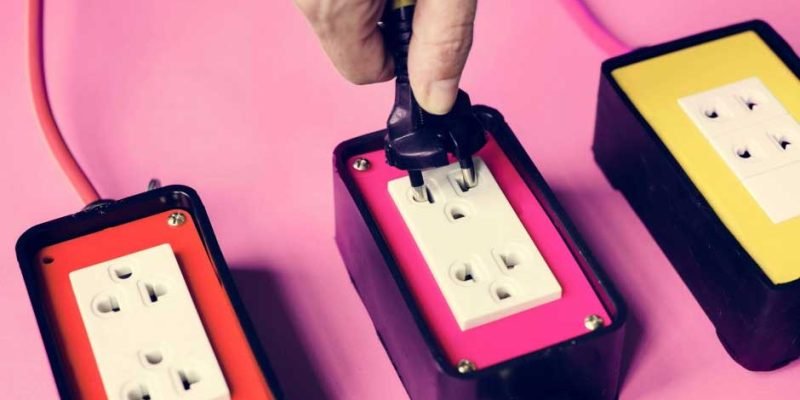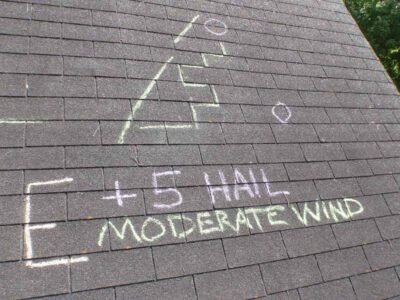Load centers, also known as electrical service panels, are an essential component of any infrastructure or building’s electrical system. They distribute power to circuits and protect against electrical overload, but like any electrical component, they require regular checking and maintenance to ensure safety and efficiency. In this article, we’ll explore load center maintenance and provide tips for keeping your electrical system running smoothly.
Signs of Load Center Problems
Load Center Panel Maintenance is critical to keeping your electrical system safe and efficient. A load center panel is a critical component of your electrical system that distributes power to circuits throughout your home or business. Over time, load center panels can develop problems that compromise their performance and pose a risk of electrical fires or other hazards. Here are some signs that your load center panel needs maintenance:
- Flickering Lights
If you notice lights flickering or dimming, this could indicate a problem with the load center panel. Loose connections or corroded wires can cause voltage fluctuations that result in flickering lights.
- Circuit Breaker Trips
Frequent trips of circuit breakers can indicate an overload in the electrical system. This could be due to loose connections, circuit overloading or short circuits that need to be addressed.
- Burn Marks or Melted Plastic
Burn marks or melted plastic around the load center panel could indicate overheating or arcing of wires, which can cause electrical fires. These issues must be addressed immediately to ensure the safety of your home or business.
Regular maintenance and inspection of your load center panel can help prevent these problems from occurring and ensure the safety and efficiency of your electrical system.
Load Center Maintenance Checklist
Regular maintenance is crucial to keep your load center electrical safe and efficient. Here are some essential maintenance steps to keep your load center panel in top condition:
- Inspect the Load Center Panel
Regularly inspect the load center panel for signs of damage or wear and tear, such as cracks, dents, or rust. Any damaged components have to be replaced immediately to ensure optimal performance.
- Tighten Connections
Ensure that all connections are secure and tighten any loose ones. Loose connections can cause power interruptions or lead to arcing, which can be dangerous.
- Remove Dust and Debris
Over time, dust and debris may accumulate on the load center panel and affect its performance. Use a soft brush tool or cloth to clean the load center regularly to prevent these issues.
- Test Circuit Breakers
Check and ensure that all circuit breakers and components are functioning correctly and reset any that have tripped. Faulty or malfunctioning circuit breakers should be replaced to ensure proper load balancing and safety.
- Upgrade Outdated Components
If your load center is outdated or has worn-out components, it’s time to upgrade to a new one. Outdated load centers can be inefficient, prone to malfunction, and pose a risk of electrical fires.
By following this load center maintenance checklist, you can ensure the safety and, most importantly, the reliability of your electrical system while preventing costly breakdowns and repairs.
Benefits of Load Center Maintenance
Main breaker load center maintenance is an essential part of ensuring the safety and efficiency of your electrical system. Regular maintenance can help prevent problems before they occur, saving you money in the long run. Here are some of the benefits of load center maintenance:
- Ensures Safety
Regular load center maintenance can reduce the risk of electrical fires, shocks, and other hazards. Loose connections, corroded wires, and other issues can cause overheating or arcing, which can result in serious safety hazards. By addressing these issues proactively, you can keep your home or business safe.
- Improves Efficiency
Well-maintained load centers operate more efficiently, reducing energy waste and lowering your utility bills. By addressing issues such as loose connections, you can improve the flow of electricity and reduce energy waste.
- Prevents Costly Repairs
Regular maintenance can catch and address problems before they become major issues, saving you money in the long run. Ignoring minor issues can lead to major problems that require costly repairs or even the replacement of the load center.
Regular load center maintenance is a small investment that can yield significant returns in terms of safety, efficiency, and cost savings.
Load Center Maintenance Schedule
Regular load center maintenance is crucial to keep your electrical system safe and efficient. To ensure optimal performance, it’s best to follow a maintenance schedule based on the age, condition, and usage of your load center. Here are some of the best factors to consider when determining your load center maintenance schedule:
- Load Center Catalog
Consult the load center catalog to determine the recommended maintenance schedule for your specific model.
- Electrical Usage
Heavy electrical usage can increase wear and tear on the load center, leading to more frequent maintenance needs.
- Age of Load Center
Older load centers may require more frequent maintenance to ensure safety and efficiency.
- Environment
Harsh environments, such as areas with high humidity or temperature fluctuations, can impact the performance of your load center, requiring more frequent maintenance.
- Code Requirements
Local codes may require specific maintenance schedules for load centers to ensure compliance and safety.
Consulting a licensed electrician can help you determine the best maintenance schedule for your load center, ensuring optimal performance and safety.
Load Center Maintenance Tips
Maintaining an industrial load center is essential to ensure the safety and reliability of your electrical system. Here are the best and easy tips to help you keep your load center in top condition:
- Inspect the Load Center Panel
Regularly inspect the load center panel for signs of wear and tear, like loose connections, damaged wires, or rust. Addressing these issues early can prevent more significant problems from developing.
- Keep the Load Center Clean
Dust and debris can accumulate in the load center panel, which can interfere with its performance and pose a fire risk. Regularly clean the load center panel with a soft brush or vacuum to remove any dirt or debris.
- Check the Breakers
Inspect the circuit breakers regularly for signs of damage or wear, such as corrosion, melting, or cracks. Replace any damaged breakers immediately to avoid overloading and other electrical hazards.
- Hire a Licensed Electrician
Some maintenance tasks, such as replacing wires or repairing damage, require the expertise of a licensed electrician. It’s essential to hire a professional to perform these tasks safely and correctly.
Load Center Replacement
Maintaining your main breaker load is essential to keep your electrical system safe and efficient. If your load center is damaged, outdated, or no longer meets your needs, replacing it may be the best solution. Here are some reasons why you may need to replace your load center:
- Age
If your load center is more than 20 years old, it may be outdated and no longer meet current electrical code requirements.
- Damage
If your load center has suffered damage, such as from flooding, fire, or physical impact, it may need to be reinstated with a new one to ensure the safety of your electrical system.
- Capacity
If you have added new circuits or appliances to your home or business, your load center may no longer have the capacity to handle the increased demand.
Replacing your load center is a complex and potentially dangerous task. It’s crucial to hire a licensed electrician to ensure that it’s done safely and correctly. A licensed electrician will ensure that the new load center is properly installed, grounded, and meets all local electrical code requirements.
Comparison in Maintenance: Load Center vs. Panelboard
Both load centers and panelboards are essential components of your electrical system. However, they have different maintenance needs. Here’s a comparison of the maintenance requirements for load centers and panelboards:
Load Center Maintenance:
- Regular Inspection
Load centers require regular inspection to ensure that all connections are tight and secure.
- Tightening Connections
Over time, the connections in a load center can loosen, leading to overheating and other problems. Regular tightening of connections is necessary to prevent these issues from occurring.
- Cleaning
Load centers can collect dust and debris over time, which can impede the flow of electricity. Regular cleaning is necessary to keep your load center functioning efficiently and safely.
Panelboard Maintenance:
- Circuit Breaker Testing
Panelboards require regular testing of circuit breakers to ensure that they trip properly in the event of an overload.
- Tightening Connections
Like load centers, panelboards require regular tightening of connections to prevent overheating and other issues.
- Cleaning
Panelboards can also collect dust and debris over time, which can impede the flow of electricity. Regular cleaning is necessary to keep your panelboard functioning efficiently and safely.
While the maintenance requirements for load centers and panelboards are similar, they require different types of inspection and testing. It is truly essential to hire a licensed electrician to perform maintenance on your load center or panelboard to ensure that it’s done safely and correctly. Regular maintenance will help prevent issues from occurring and ensure the safety and efficiency of your electrical system.
Keep Your Electrical System Safe and Efficient
Load center maintenance is crucial to ensure the safety and efficiency of your electrical system. By scheduling regular maintenance and addressing problems promptly, you can prevent expensive repairs and ensure the longevity of your load center. At Schneider Electric, we offer a range of load center solutions to meet your needs, from standard load centers to those designed for specific applications. So, don’t hesitate – visit our website today to learn more about our load center products and how we can help you keep your electrical system running smoothly.


















Comments